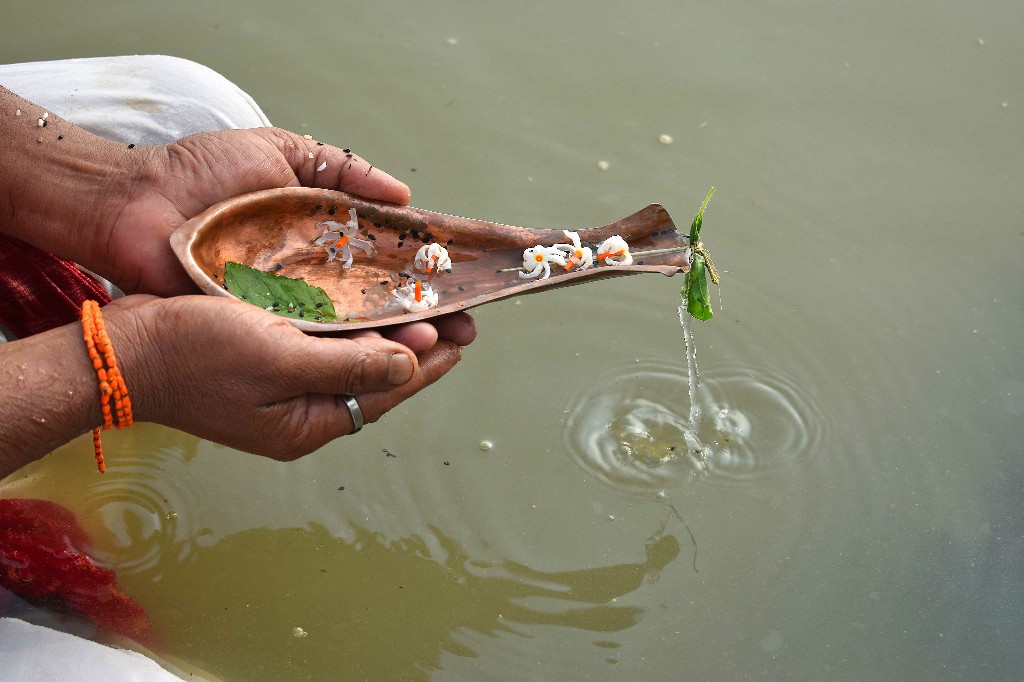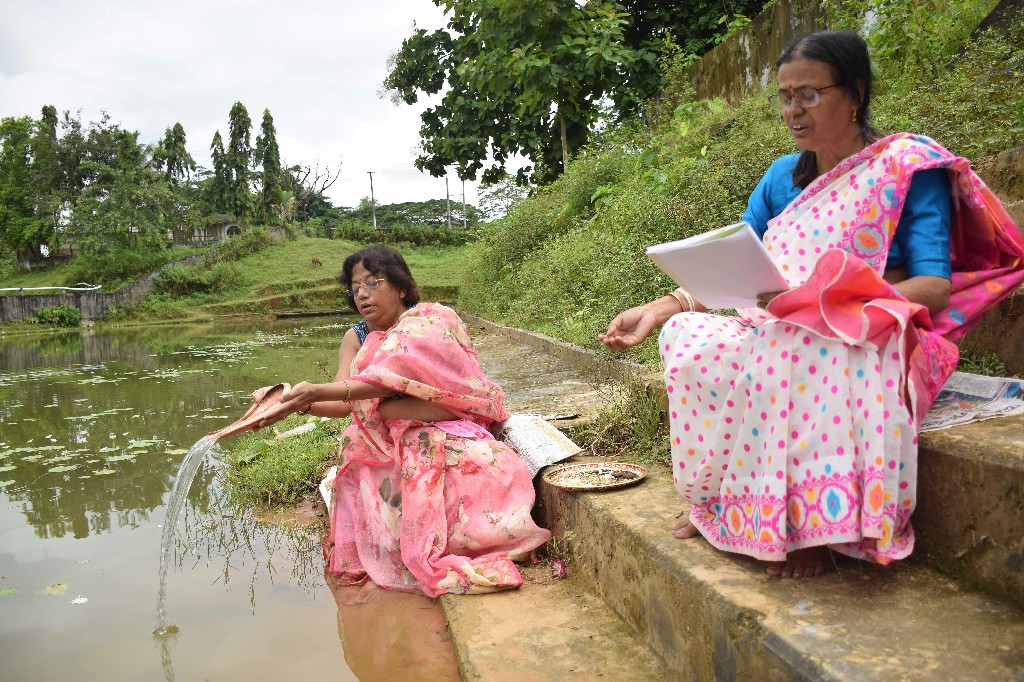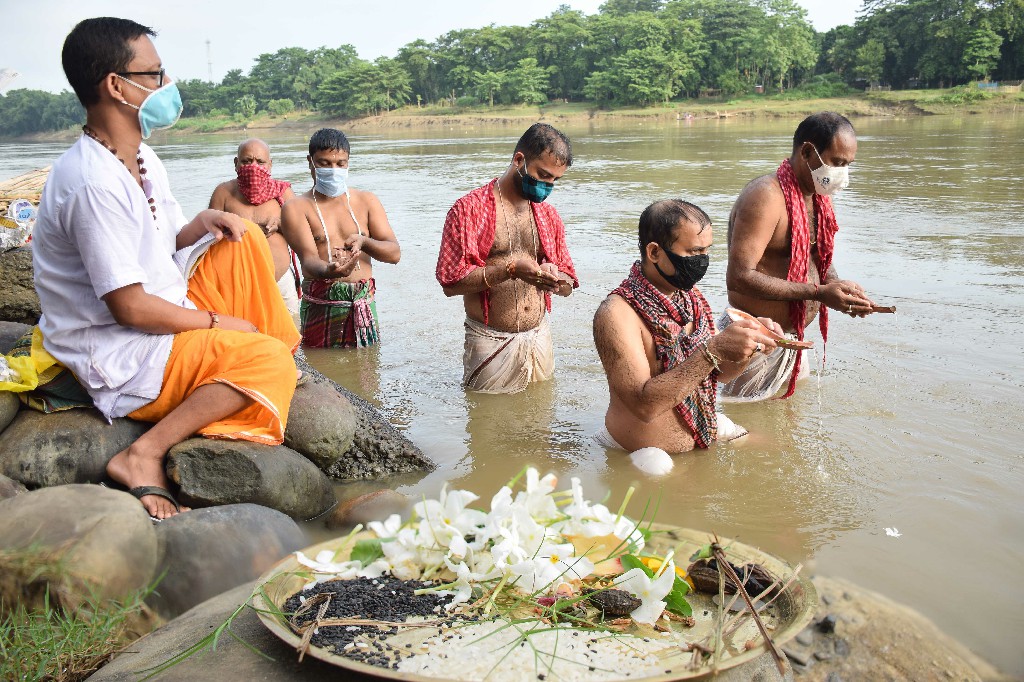Usually thousands of families converge at the historic Barak River (especially Sadarghat area) in Silchar to pay respects to their elders (Tarpana) in the form of offerings during the season of Pitru Paksha (mostly in the month of September or October). Tarpana is a term which refers (as per the Vedic practice) to an offering made to divine entities and ancestors. Tilatarpana is different but associated term that is sometimes confused with Tarpana. Tilatarpana is a specific form of Tarpana involving libations offered to the Pitrs (deceased ancestors) using water and sesame seeds during Pitru Paksha or as a death rite. It forms an integral part of our culture. Often this act is performed by the males of the society. However, Silchar reflects its own uniqueness of performing rituals.

The most striking features of Tarpana of Silchar are that many women have performed it. In fact, Silchar has got a unique history of its own related to this act. In the recent memory, Aparajita Bhattacharjee, Sharmila Dutta, Dolonchapa Daspaul and Chandrima Dutta broke their shackles and came out to support women performing Tarpana rituals and other Pujas. These women performed the rituals and also made arrangements for it. Much to the pleasant surprise of relatives and friends, a woman priest (purohit) Aparajita Bhattacharjee, resident of 2nd Link Road (lane number 7) has been performing the rituals of Tarpana and other Pujas since the year of 2014. She says, “I have come across a large number of women who hesitates to perform Tarpana, thinking it would not be accepted in the society. I do perform Puja rituals and Tarpana and I also explain the significance of every sloka/mantra to the people. I do not think it is unsuitable for a girl or a woman to pay obeisance to their parents and grandparents. All should get equal rights”.
“Tarpana is a term which refers to (as per the Vedic practice) to an offering made to divine entities and ancestors. Tarpana, which means remembrance, has been formed from its root ‘trup’ meaning satisfying others. Departed souls of family members are remembered and obeisance is paid to them. Daughters may remember their parents as well,” she explained.

Sudipa Rakshit, former head, Department of Commerce, Cachar College, Silchar, who offered obeisance, with Aparajita Bhattacharjee as the priest, said, “Aparajita Bhattacharjee is the only priest whom I contact for Tarpana and other Puja rituals. Virtually invisibly, women here should be given a chance to create a niche space for themselves in the private religious space.”
“I understand the profession of priest in marriages is a male bastion, but things should change. I wanted to change that perspective and make people realize that it is achievable. Woman priests should also be encouraged and hired to conduct Tarpana and other Pujas,” said Aparajita Bhattacharjee.

